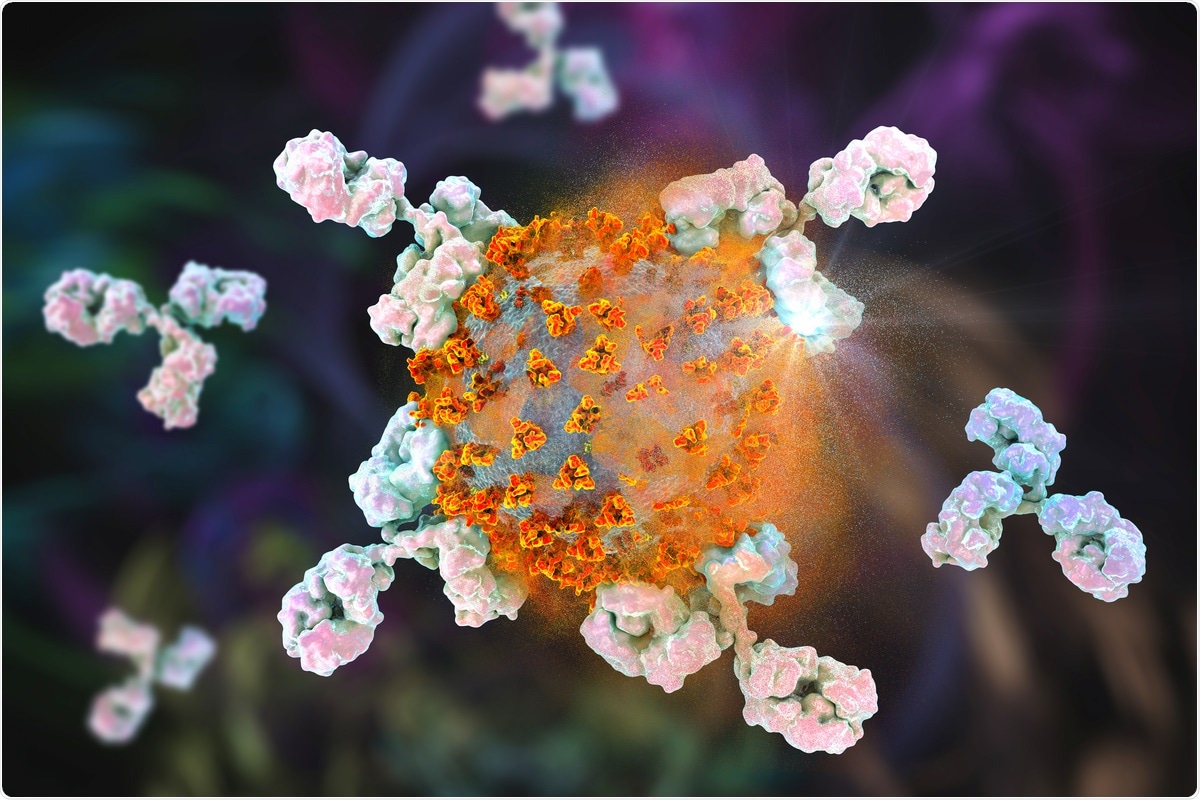Limited treatment options for the novel severe acute respiratory syndrome coronavirus (SARS-CoV-2) have led to extensive research on host immunity and immunotherapies. One of the most researched topics in the present day is the effect of pre and post-exposure immunotherapies with neutralizing antibodies (nAbs) to prevent and treat coronavirus disease 2019 (COVID-19).
 Study: Highly active engineered IgG3 antibodies against SARS-CoV-2. Image Credit: Kateryna Kon/ Shutterstock
Study: Highly active engineered IgG3 antibodies against SARS-CoV-2. Image Credit: Kateryna Kon/ Shutterstock
Researchers have worked at unprecedented speed to isolate monoclonal antibodies (mAbs) that efficiently neutralize SARS-CoV-2. These mAbs are mainly directed against spike protein (SP) on the virion’s surface, are predominantly of the Immunoglobulin 1 (IgG1) subtype.
Apart from these, a strong prevalence of other subclasses (like IgG3 and IgG4) have also been observed in the sera of COVID-19 patients, indicating a protective effect during the viral infection. While the role of IgG1 is intensively investigated, data on the functional impact of the other IgG subclasses, differentiated mainly by diverse Fc domains, are rare.
To help in understanding the various functions induced by the heavy-chain constant domain in mAbs, researchers published a study in PNAS focussing on the expression and functional analyses of a neutralizing mAb with identical variable domains but different constant heavy chains (HCs), representing all four IgG subclasses present in human serum (IgG1-4).
Study details
To explore the diverse roles of Abs in SARS-CoV-2 immunity, researchers artificially expressed a SARS-CoV-2 spike protein (SP) binding mAb (H4) in the four IgG subclasses present in human serum (IgG1-4) using genetically engineered Nicotiana benthamiana.
Affinity- and size exclusion chromatography were used to purify the mAbs. These mAbs were then subjected to ELISA antigen-binding assays, and a Vero cell-based SARS-CoV-2 infection assay measured neutralizing activity.
All four subclasses of immunoglobulins, carrying the identical antigen-binding site, were fully assembled and exhibited a largely similar xylose- and fucose-free glycosylation profile. The Ab variants ligated to the SP, out of which IgG3 had a five-fold increased binding affinity. Furthermore, all H4 subtypes were able to neutralize SARS-CoV-2. However, H4-IgG3 exhibited an up to 50-fold superior neutralization potency compared with the other subclasses.
Study implications
This study showed that IgG3 was most effective in neutralizing the spike protein of SARS-CoV-2 compared to other immunoglobulins, despite relatively modest variations in antigen binding. This is crucial in determining the course of mAb therapy in managing and treating patients with COVID-19.
- Kallolimath, S. et al. (2021) "Highly active engineered IgG3 antibodies against SARS-CoV-2", Proceedings of the National Academy of Sciences, 118(42), p. e2107249118. doi: 10.1073/pnas.2107249118.
Posted in: Medical Science News | Medical Research News | Disease/Infection News
Tags: Antibodies, Antigen, Assay, binding affinity, Cell, Chromatography, Coronavirus, Coronavirus Disease COVID-19, Glycosylation, immunity, Immunoglobulin, Protein, Research, Respiratory, SARS, SARS-CoV-2, Severe Acute Respiratory, Severe Acute Respiratory Syndrome, Spike Protein, Syndrome

Written by
Sreetama Dutt
Sreetama Dutt has completed her B.Tech. in Biotechnology from SRM University in Chennai, India and holds an M.Sc. in Medical Microbiology from the University of Manchester, UK. Initially decided upon building her career in laboratory-based research, medical writing and communications happened to catch her when she least expected it. Of course, nothing is a coincidence.
Source: Read Full Article
